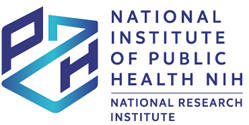ABSTRACT
Background. Cardiovascular diseases (CVD) due to their large expansion and high mortality represent a serious problem for society. Ischemic heart disease and myocardial infarction is the leading cause of death and morbidity in both men and women in Europe, although is lower in women than in men.
Objective. To evaluate the occurrence of cardiovascular risk factors and the impact of selected dietary habits on lipid profile and body mass index in adult men hospitalized after myocardial infarction in the Cardiocenter Nitra in 2010-2020.
Material and Methods. This study was focused on a group of adult men (n = 193) in the age range of 25 to 85 years.
Patients were selected using the method of random selection from the database of those hospitalized in the Cardiocenter Nitra in 2010-2020. We evaluated to influence of risk factors of cardiovascular diseases on lipid profile and BMI of men.
The questionnaire for the detection of dietary habits and life style of respondents was used. It was applied individually by interviewer and was compiled by the Institute of Nutrition and Genomics. Data collection was carried out simultaneously with a somatometric and biochemical examination of the respondents ensured by the Cardiocenter Nitra. The following parameters were tested: total cholesterol (T-C), LDL cholesterol (LDL-C), HDL cholesterol (HDL-C) and triacylglycerols (TAG) and glucose (GLU) by automatic biochemical analyzer BioMajesty® JCA-BM6010/C. We used statistical analysis of Statistica Cz version 10 and one-way ANOVA, followed by Tukey's post hoc test.
Results. The most important risk factor is clearly the lifestyle of the respondents. Only 11% of the respondents had an optimal BMI, 51% were classified as overweight and up to 38% had a BMI higher than 30 kg.m-2. Improper dietary habits and lack of physical activity contributed to the development of hypertension and hypercholesterolaemia in the majority of respondents. Statistically significant changes in HDL-cholesterol scores were found to be associated with respondents’BMI (p< 0.01).
Conclusions. Studied men after the myocardial infarction should attach particular importance to their diet and lifestyle, which significantly affect BMI, blood lipid parameters and the inflammatory process as risk factors responsible for the etiopathogenesis of cardiovascular diseases.
You can change cookies settings in your browser. Restricted use of cookies in the browser configuration may affect some functionalities of the website.



